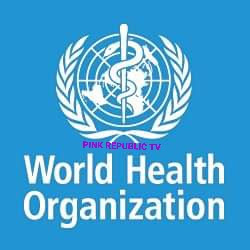World Health Organization, WHO estimates that one in every 10 African adolescent uses tobacco even though 24 African countries have instituted bans on smoking in public places, and 35 banned tobacco advertising, promotion and sponsorship.
In a message to commemorate the World No Tobacco Day 2022, WHO Regional Director for Africa, Dr Matshidiso Moeti, said the emergence of new products, such as electronic nicotine and tobacco products, are making them attractive to youths, thereby, compounding the concerns.
"With 44 of WHO African Region’s 47 countries having ratified the WHO Framework Convention on Tobacco Control, which commits them to adopting effective and evidence-based measures to curb tobacco consumption, the need to address related environmental damage has seen WHO redouble its efforts to counter the overall threat."
According to her, the environmental impacts of tobacco farming include massive use of water, which is a scarce resource across most countries in the continent, large-scale deforestation and contamination of air and water systems.
"Land used to grow tobacco could also be used much more efficiently, especially in countries grappling with food insecurity. To help counter the threat, WHO has joined hands with the Food and Agriculture Organization of the United Nations (FAO) and the Kenyan government to create the Tobacco-Free Farms project." She stressed.
The Tobacco-Free Farms project launched in March, supports farms to switch from tobacco to alternative food crops, that will help feed communities, rather than harm their health. UN agencies and the Kenyan government provide training, inputs such as seeds and fertilizer, and a ready market for their harvest through the World Food Programme’s local procurement initiatives.
She said: "so far, 330 Kenyan farmers have switched to growing beans, with the first harvest yielding more than 200 metric tons and the second season, which has just begun, is now reaching more than another 1000 farmers. This is extremely encouraging for our plans to roll this programme out to other tobacco-growing countries on the continent."
Dr. Moeti, noted that this kind of hard evidence is essential to change the mindsets of farmers, and governments, who believe that tobacco is a cash crop with the potential to generate economic growth adding that in Malawi, tobacco accounts for about half of all exports while the comparative number for Zimbabwe is 13%, whereas 6% and 3% stand for Mozambique and Tanzania respectively.
She lamented that these are short-term gains, that are eclipsed by the long-term consequences of increased food insecurity, sustained debt for farmers, illness and poverty among farmworkers, and widespread environmental damage; keeping Tobacco-related illness in the African Region at 3.5% of annual total health expenditure.
The regional Director further lamented that while tobacco leaf production is decreasing globally, it is increasing in the WHO African Region, which now produces about 12% of all tobacco leaf internationally. Nearly 90% of tobacco growing in the Region is concentrated in the East and Southern sub-regions.
She called on African governments to impose environmental tax levies on tobacco across the value and supply chains, including production, processing, distribution, sales, consumption and waste management. For tobacco-growing countries, just as she commits to WHO’s support to assist farmers to switch to alternative crops.
Dr. Moeti, encouraged countries to accelerate implementation of the WHO Framework Convention on Tobacco Control (WHO FCTC), which provides the necessary guidance to advance the creation of smoke-free environments, to create programmes to support tobacco users to quit, and support for the application of excise tax and other financial countermeasures as according to her, reducing tobacco consumption is key to realizing the health-related Sustainable Development Goals.
The World No Tobacco Day is celebrated on 31st May every year, to raise awareness on the negative health, social, economic and environmental impacts of tobacco production and use.
This year’s theme, “Tobacco: Threat to our environment”, aims to highlight the environmental impact of the entire tobacco cycle, from cultivation, production and distribution, to the toxic waste it generates.




Comments
Post a Comment